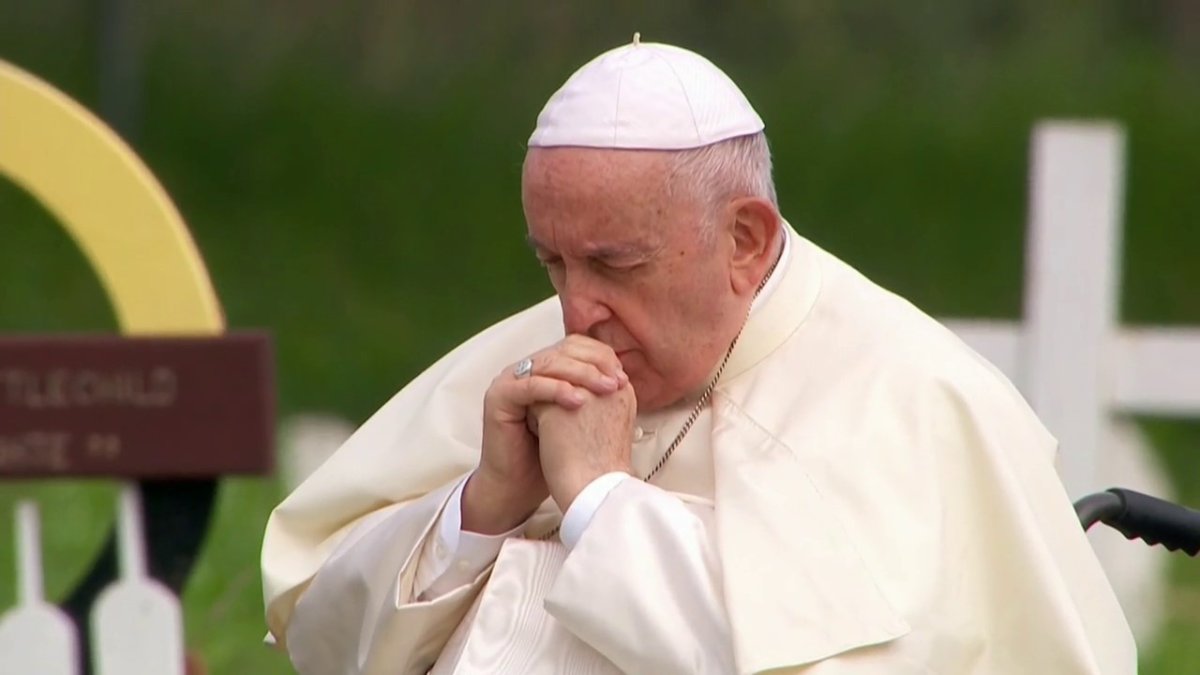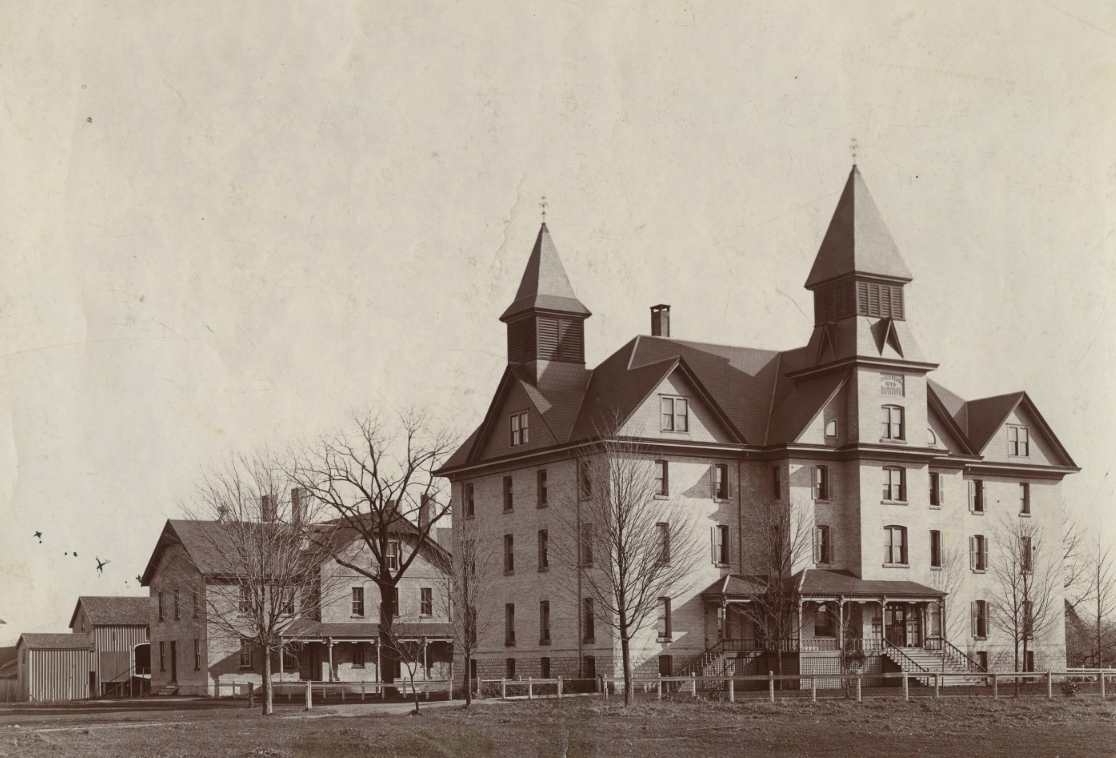The Chief of the Association Of Iroquois & Allied Indians says the apology for residential schools delivered on Canadian soil Monday by Pope Francis was sincere, but falls short of acknowledging the role the church played in laying the groundwork for atrocities.

Reacting to the papal apology in Edmonton, Grand Chief Joel Abram said overall, it was a positive experience.
“He did feel shame and guilt, on behalf of the Christians that did take part in the residential schools. I saw the impact that it had, and so it’s good in that maybe it’ll start people’s healing journey. To them, they heard the words that they wanted to hear, yet in another sense, there are some words that he did not say,” Abram told Global News.
“I heard him say very clearly that he was sorry for the actions of the Christians and members of the church, the children of the church, and he’s also sorry about the assimilationist policies that led to things like the residential schools. But what I did not hear him apologize and take responsibility for is the actions of the church itself and laying the groundwork for the assimilation.”
Abram is hopeful that the leader of the Catholic Church will elaborate on what he meant at one of his other stops during his Canadian visit.

Pope Francis apologized and asked for forgiveness for residential schools during an address to residential school survivors and elders in Maskwacis, Alta., where the former Ermineskin Indian Residential School was located.
During his remarks, Pope Francis expressed his sorrow, indignation and shame for the churches and Christians’ role in the residential school system.
He says the memory of children who attended the schools is painful, and every child should be treated with love, honour and respect.
More than 60 per cent of residential schools were run by the Catholic Church.
- Life in the forest: How Stanley Park’s longest resident survived a changing landscape
- ‘They knew’: Victims of sexual abuse by Ontario youth leader sue Anglican Church
- Carbon rebate labelling in bank deposits fuelling confusion, minister says
- Buzz kill? Gen Z less interested in coffee than older Canadians, survey shows
An estimated 150,000 Indigenous children were forced to attend residential schools in Canada, where neglect and physical and sexual abuse were rampant.
The Pope’s six-day trip follows a meeting in April, where he met with First Nations, Inuit and Metis groups at the Vatican. During that trip, the pontiff apologized for the “deplorable conduct” of church members involved in residential schools, but Indigenous representatives insisted an apology be made on Canadian soil.
With many residential school sites still being searched for unmarked graves, and several groups still trying to gather information on the children at those schools, Abram was asked about the timing of the Pope’s trip. He said he has mixed feelings about it.
“They should have known a long time ago that what their actions were was wrong. They took part in the minimum of cultural genocide of Indigenous Peoples in this country, and so it is going to be triggering for a lot of people, whether it’s delivery tomorrow, or next year or today.”
Despite there still being several things the Catholic church has to do on the way to reconciliation, like honouring the residential school settlements and returning cultural items, Abram is hopeful this is a step forward.
“I think the words that he said did indicate that they wanted to walk that path together, so I think that was very positive,” Abram said.

Southern Ontario was home to two residential schools: Mohawk Institute Residential School in Brantford and Mount Elgin Indian Residential School (also known as Muncey Institute) in Muncey.
Mohawk Institute was the longest continually-operating residential school, from 1885 to 1970. It was initially operated by the Anglican church before the federal government assumed responsibility for the school in 1945, according to the National Centre for Truth and Reconciliation.
At least 48 children are known to have died while they were students of the Mohawk Institute. There were five student deaths at Mount Elgin.
The Truth and Reconciliation Commission (TRC) reports that 139 residential schools operated in Canada between 1828 and 1996, 17 of which were in Ontario.
The TRC identified 3,200 deaths as part of its investigation, but Indigenous groups across Canada have long insisted that number is much higher.
– with files from Brittany Hobson, The Canadian Press










Comments